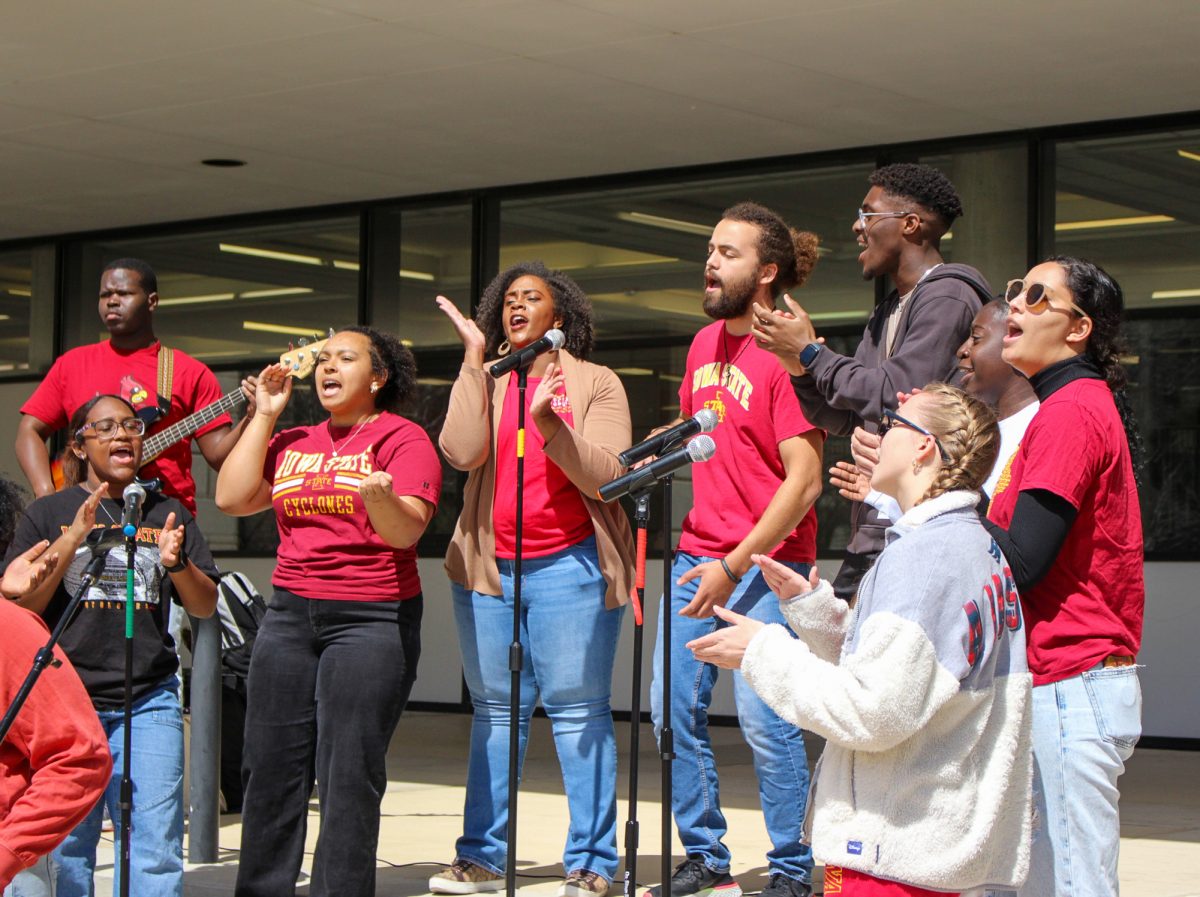A young college student is attending a PWI (predominantly white institution), and it is time for a group project. She is the only person of color in the room. She shares with her group that she is OK with doing most of the work due to being a perfectionist. A group member responds by saying, “Yeah, we expected that.”
Ng Zhi Shuen (Valerie), a senior at Iowa State University from Malaysia majoring in psychology and criminal justice, said she wonders why stereotypes surrounding international students are so prevalent and why others would assume that she would do all the work.
“The only thing you know about me is my name, I’m a psychology major and I’m Chinese,” Zhi Shuen said. “That’s it.”
As of fall 2022, 8.2% of students enrolled at Iowa State University were international students, and as of the 2020-2021 academic year, 4.6% of college students in the U.S. were international students.
Sean Chan is from Malaysia and is a senior majoring in business analytics at Iowa State. Chan went through a class called International First Year Experience (IFYE) that helped him get through the culture shock and learn the customs and laws of the United States.
Chan said he has also faced microaggressions, including when people tell him how surprised they are that he speaks English so well.
“It’s kind of implying that my English isn’t supposed to be good just because of my ethnicity,” Chan said.
Gabriela Aponte Sosa, a senior majoring in hospitality management, is originally from Colombia.
Aponte Sosa said that Colombia has a caste system that is ranked one through six based on economic status, which she said sounds “super medieval.”
“I wanted a different experience, and I wanted to expand my horizons,” Aponte Sosa said. “I just wanted more independence. I wanted an opportunity to practice a different language [and] meet people from all over the world, so I knew that I wanted to get out.”
Aponte Sosa’s mother was concerned for her safety when coming to the United States because it was around the time of George Floyd’s murder, and Minnesota is only a state away. Her mother feared that she would get killed, Aponte Sosa said.
Eunsol Kim, 22, is an international student from South Korea majoring in advertising. Her parents were also concerned about safety because Kim said issues with things like guns and drugs aren’t common in South Korea.
“I wanted to have a diverse experience because my whole life was in Korea,” Kim said.
When Kim first came to the United States, she was unfamiliar with strangers smiling, holding the door open for the people behind them and small talk.
Zhi Shuen felt similarly about how people acted toward him.
“I didn’t expect people to be friendly here,” Zhi Shuen said. “I expected them to be in some way racist or just mean or not welcoming to newcomers.”
There are a lot of differences from country to country, and one of them that Aponte had to get used to was not being as open to embracing her friends.
“Latinos in general, we’re very touchy,” Aponte Sosa said. “I love hugging people. We say hi with a kiss, we make friends everywhere we go and people here are like, ‘Don’t touch me.’”
Aponte Sosa said that one of her friends once got mad at her for hugging her boyfriend.
“She was saying, ‘That’s too touchy. That’s too intimate,’” Aponte Sosa said. “I was just saying hello.”
Kim said it is very different to get close and comfortable with American friends.
“They treat me too nice because I’m an international student,” Kim said. “I feel like they treat me only as a guest.”
Chan said that things such as stereotypes and language barriers tend to turn Americans away from pursuing friendships with international students.
According to Zhi Shuen, international students often make the mistake of sticking with friends of the same ethnicity or from the same country when studying abroad.
“They don’t go out and venture out and connect with people like the locals here or people from other countries,” Zhi Shuen said.
Chan said he is lucky to have both international and American friends.
“You want to build that connection with everyone and that’s part of why you’re here in the United States,” Chan said. “If you’re going to be around your home country’s people, then it defeats the purpose.”









Faith | Aug 28, 2023 at 10:48 am
I think this is a decent article, but there is a misrepresentation of why or what people assume of others. There is also that expectation between sex as well. Women are more likely to be pointed out to being perfectionists and end up doing a lot of work. I think they biggest part this article is missing out is how these people grew up and the culture they did, they were taught young to work hard to achieve their goals. Without that part about their culture, this is a pretty negative article and I wish you could have used your influence to show that these amazing international students worked hard and go through things to achieve goals.